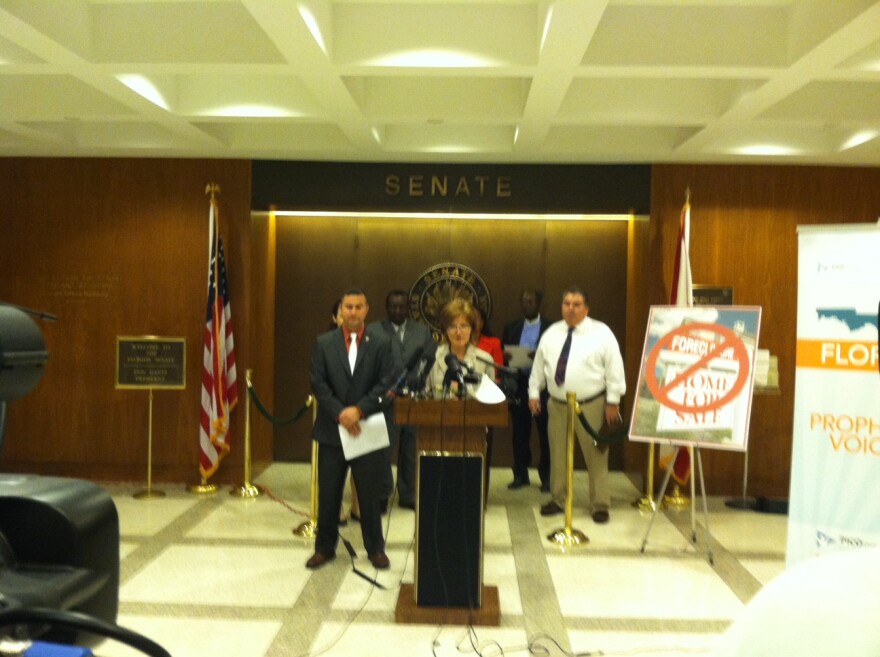Florida received more than $330 million as part of a multi-state foreclosure fraud settlement with the nation’s biggest banks. Other states have used their share of the dollars to plug budget holes, and they’ve been criticized for not spending the money on housing-related issues. That’s not the case in Florida. Still, as the legislature works to craft a budget, some lawmakers worry their colleagues may be tempted to spend the money in other ways.
“At one time we were actively given a court order for mediation. We went to the mediation. Two days later we found out they were actively foreclosing and our home was on the auction block," says Jean Bagga, with PICO Florida.
Bagga’s story is similar to thousands of Floridians who have found themselves in foreclosure and then to strike deals with banks only to get the runaround. The nations’ five biggest banks were sued in the aftermath of the foreclosure crisis for things like fraudulently foreclosing on homeowners. The state’s share of the $25 billion settlement was $330 million. And the battle over how to spend the money began back in October, when Florida Attorney General Pam Bondi insisted the money be used to support housing programs, while other lawmakers wanted to use the money to go to other areas.
“We’re here to discuss what’s currently a misguided plan to use the national foreclosure settlement monies for many areas that have nothing to do with helping families affected by foreclosure," said Democratic Senator Darren Soto.
He and the Senate Democratic caucus, have a plan to spend the foreclosure settlement money directly on people affected by the crisis, rather than just on the broader issues of housing. Under the original deal between the Florida Attorney General’s Office and state legislative leaders, $60 million would be spend on down payment assistance, legal aid and housing education programs through the AG’s office. The legislature would spend $200 million on other housing related programs. And the rest would go to the state’s General Revenue Fund. But the Senate Democrats plan, as discussed by Senator Audrey Gibson, goes further than that.
“One component of the plan includes sending money to our locals to make sure housing that has already been foreclosed can be bought by first-time homeowners, not investors, interested in living in that home," Gibson said.
The Democrats’ alternative plan would also bring more people into a federal program set up to assist struggling homeowners with paying their mortgage and refinancing their homes.
“This money is here to help us get out of this crisis. So first and foremost we provide for $4 million each year for the next three years to administer the Hardest Hit Fund," said Soto as he pitched a plan to steer money into the program.
Three years ago the federal government gave states like Florida billions of dollars to help pay the mortgages for homeowners who are unemployed or underemployed through no fault of their own. Now three years into the state’s billion-dollar Hardest Hit program, there’s still more than $800 million left unspent.
Correction: An earlier version attributed the Florida Housing Finance Corp. saying it doesn't have enough people, money or staff to run Hardest Hit. FHFP says it has everything it needs to continue running the program. That statement was said by a spokeswoman for Sen. Soto in explaining the $4 million funding request for the FHFC.


